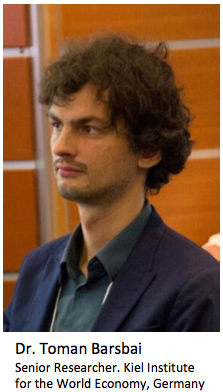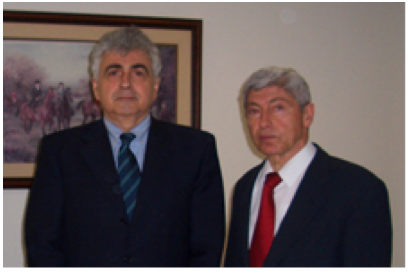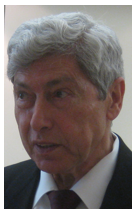Scientific articles
by Toman Barsbai and Sebastian Braun, Kiel Institute for the World Economy, The authors are Kiel Institute researchers whose specialist fields include asylum and international migration and development. https://www.ifw-kiel.de
 The current asylum system is contradictory, unfair, and both costly and hazardous for all involved. Under the present rules, refugees can normally only apply for asylum in a country after they have crossed its border often by illegal means and at great risk to their personal safety. The solution is to reform the system so that people can apply for asylum before they enter the EU.
The current asylum system is contradictory, unfair, and both costly and hazardous for all involved. Under the present rules, refugees can normally only apply for asylum in a country after they have crossed its border often by illegal means and at great risk to their personal safety. The solution is to reform the system so that people can apply for asylum before they enter the EU.
The recent EU-Turkey refugee deal does little to resolve the current crisis. While it is true that the flow of refugees from Turkey to Greece has reduced significantly, there has been a simultaneous increase in the number of refugees using other routes to enter the EU. The response from the German government is to seek more deals this time with countries in North Africa.
Read more: Making the Asylum System More Efficient and More Humane
Chair: Dr. med. Nadim Sradj, M.A.: Philosopher and Ophthalmologist Vice President, ARABMED, Email: This email address is being protected from spambots. You need JavaScript enabled to view it.
1. H.E. Dr. Nassif Hitti: Ambassador, Head of the League of Arab States Mission and permanent Observer to UNESCO, Paris
2. Andreas Reinmuth, MBA, EMBS, PhD: Management, Cultural Sciences, Natural Healing 3. Günter Schönborn: Business Consultant, Author, Representative of the Macular
Degeneration Association /Germany 4. Dr. Albert Tanios, Ph Médicin, Prof. Agrégé of Psychiatrie, Paris

Revolution can be understood as expressions of crises of conscience. Conscience defines the dynamic relationship of an individual to the world, as a pivotal determiner in time and space. Self- confidence is identical with self- esteem. Thinking, as it takes place in the world, is not the topic. Rather, it is the intention of recognizing the world in which thinking takes place. Our concept of “Global Science.” thus emerged as an aid to orientation in an ever changing world. Present day political philosophy assumes that it is better for theories to die than for people to die.
Ref.: “Conference of Arabic Physicians in Europe (Arabmed, NGO-Member of the United Nations), Paris 26th October 2012”
Dr. Nassif HITTI Ambassador, Head of the Arab League Mission in Paris And Permanent Observer to UNESCO 36, RUE FORTUNY – 75017 PARIS – TEL: 01 43 80 61 50 – FAX: 01 48 88 91 71
I had the opportunity to participate at the conference on “Opposition, Resistance, Rebellion and Revolution - the Arab Spring from the Vantage Point of Political Philosophy”.
The particular added value of this conference to the many conferences on the Arab revolutions changes that have been organized in the set two years lies in its comprehensive multidisciplinary approach that allowed to shed more light and to have a deeper view and understanding of the different interdependent factors in the causes of the revolutions but also in the ongoing transitions as well as the factors that will
 Dr. med. Nadim Sradj, M.A., Vice President of Arabmed , Weinweg 7, D-93049 Regensburg /Germany, Email: Sradj(at)gmx.de , phone: ++49-941-29103, Fax : ++49-941-28711
Dr. med. Nadim Sradj, M.A., Vice President of Arabmed , Weinweg 7, D-93049 Regensburg /Germany, Email: Sradj(at)gmx.de , phone: ++49-941-29103, Fax : ++49-941-28711
Summary: The sciences influence people at the present time more than ever. For this reason, topics addressed by science are no longer only an internal affair for experts and the scientific elite.
Our study presents the 8 currently known forms of logic and research methodology, which have in part been used in unchanged fashion for several centuries. The laws of classical logic account for the axis around which thinking and human orientation revolve.
Scientific policy and research strategy are occupied with the question, among others, of whether political freedom and national autonomy are possible as long as an intellectual and scientific dependency on foreign cultures and ways of thinking persist.



